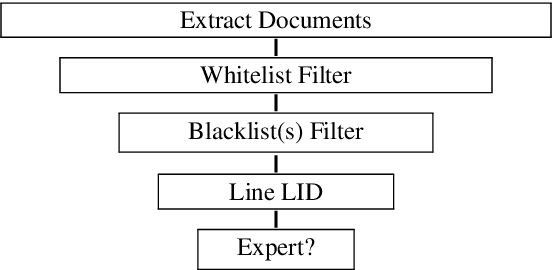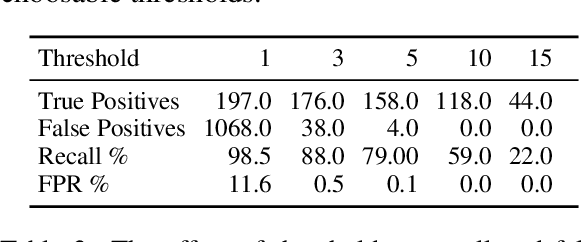Rasul Dent
CommonLID: Re-evaluating State-of-the-Art Language Identification Performance on Web Data
Jan 25, 2026Abstract:Language identification (LID) is a fundamental step in curating multilingual corpora. However, LID models still perform poorly for many languages, especially on the noisy and heterogeneous web data often used to train multilingual language models. In this paper, we introduce CommonLID, a community-driven, human-annotated LID benchmark for the web domain, covering 109 languages. Many of the included languages have been previously under-served, making CommonLID a key resource for developing more representative high-quality text corpora. We show CommonLID's value by using it, alongside five other common evaluation sets, to test eight popular LID models. We analyse our results to situate our contribution and to provide an overview of the state of the art. In particular, we highlight that existing evaluations overestimate LID accuracy for many languages in the web domain. We make CommonLID and the code used to create it available under an open, permissive license.
KréyoLID From Language Identification Towards Language Mining
Mar 09, 2025



Abstract:Automatic language identification is frequently framed as a multi-class classification problem. However, when creating digital corpora for less commonly written languages, it may be more appropriate to consider it a data mining problem. For these varieties, one knows ahead of time that the vast majority of documents are of little interest. By minimizing resources spent on classifying such documents, we can create corpora much faster and with better coverage than using established pipelines. To demonstrate the effectiveness of the language mining perspective, we introduce a new pipeline and corpora for several French-based Creoles.
Molyé: A Corpus-based Approach to Language Contact in Colonial France
Aug 08, 2024



Abstract:Whether or not several Creole languages which developed during the early modern period can be considered genetic descendants of European languages has been the subject of intense debate. This is in large part due to the absence of evidence of intermediate forms. This work introduces a new open corpus, the Moly\'e corpus, which combines stereotypical representations of three kinds of language variation in Europe with early attestations of French-based Creole languages across a period of 400 years. It is intended to facilitate future research on the continuity between contact situations in Europe and Creolophone (former) colonies.
Kreyòl-MT: Building MT for Latin American, Caribbean and Colonial African Creole Languages
May 08, 2024



Abstract:A majority of language technologies are tailored for a small number of high-resource languages, while relatively many low-resource languages are neglected. One such group, Creole languages, have long been marginalized in academic study, though their speakers could benefit from machine translation (MT). These languages are predominantly used in much of Latin America, Africa and the Caribbean. We present the largest cumulative dataset to date for Creole language MT, including 14.5M unique Creole sentences with parallel translations -- 11.6M of which we release publicly, and the largest bitexts gathered to date for 41 languages -- the first ever for 21. In addition, we provide MT models supporting all 41 Creole languages in 172 translation directions. Given our diverse dataset, we produce a model for Creole language MT exposed to more genre diversity than ever before, which outperforms a genre-specific Creole MT model on its own benchmark for 23 of 34 translation directions.
 Add to Chrome
Add to Chrome Add to Firefox
Add to Firefox Add to Edge
Add to Edge